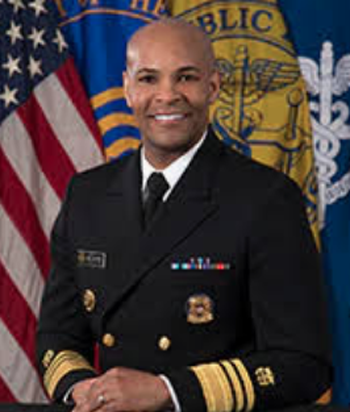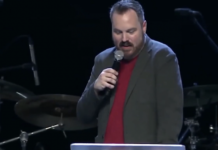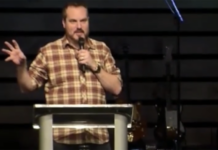By Mark Ellis —

Surgeon General Jerome Adams, appearing on Fox on Good Friday, drew a striking parallel between the COVID-19 deaths during Holy Week and Christ’s sacrifice on the cross.
“As we reflect on the ultimate sacrifice that was made for us, it is appropriate that we reflect on the many lives that were lost. The last three days New York hit a new record for deaths,” he noted.
Dr. Adams, a board-certified anesthesiologist, served as the Indiana State Health Commissioner before he was appointed the 20th Surgeon General of the United States.
Broadcaster Ed Henry asked Adams about Americans’ increased reflection about spiritual matters and what is important in their lives during the present crisis, particularly at Passover, Good Friday, and Easter.
New York has one of the highest populations of Jewish people outside of Israel and they would normally be gathering in groups to celebrate the Passover Seder.
In the first Passover, the Hebrew people huddled in their homes and sacrificed a spotless lamb. The blood of the lamb placed on their doorposts protected them from a plague of death that swept through Egypt.
For Christians, Passover is symbolic of the ultimate sacrifice made by Jesus Christ, called “The Lamb of God,” who died on a cross for the sins of the world. His shed blood means Christians need not fear the plague of death.
“I think it is oddly fitting that this is occurring during Holy Week,” Surgeon General Adams replied, “that we are hitting our peak number of cases in the United States, because Holy Week is about recognizing sorrow, sadness, the ultimate sacrifice, but realizing there is salvation at the end.
“This is going to be a sad week but there is salvation at the end,” he exclaimed.
Adams affirmed that the mitigation efforts are bearing fruit. “We know the things we’re doing are working. I want to thank America. Thank you America for making these sacrifices because you are literally saving lives.”
Ed Henry noted that Surgeon General Adams deals with several underlying health conditions himself.
“I grew up poor,” Adams recounted. “I grew up black in a majority white area and I grew up with asthma. I have heart disease. I have pre-diabetes. So even though I look healthy and even though I look thin, actually I’m at higher risk for coronavirus.”
“I want to tell people across America that you can’t look at someone and tell if they are going to be at risk for this. We know that communities of color are at higher risk for this because there is a higher incidence of chronic disease like heart disease and lung disease.”
Adams grew up in Mechanicsville, Maryland on a family farm. He attended Chopticon High School, graduating in 1992 in the top 5% of his class.

In testimony before a Senate committee about opioid use, he described his brother’s struggle with addiction and how it impacted his elderly parents, who still live in Maryland. He said his parents were afraid to leave their home, worried his brother might steal from the house to get money for drugs or harm himself.
“My mother has severe chronic back pain, but chooses to suffer through it rather than agonize about the temptation of keeping her own pain meds around the house,” he testified.
Adams’ hard work and strong faith brought him to the attention of then-Governor Mike Pence, and provided the foundation for his rise to national prominence — placing him at the center of the national crisis.



